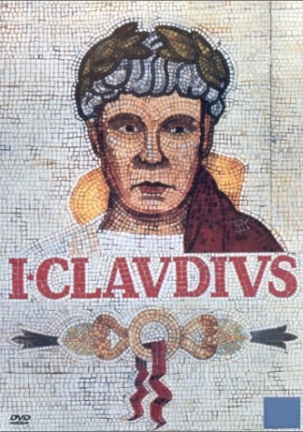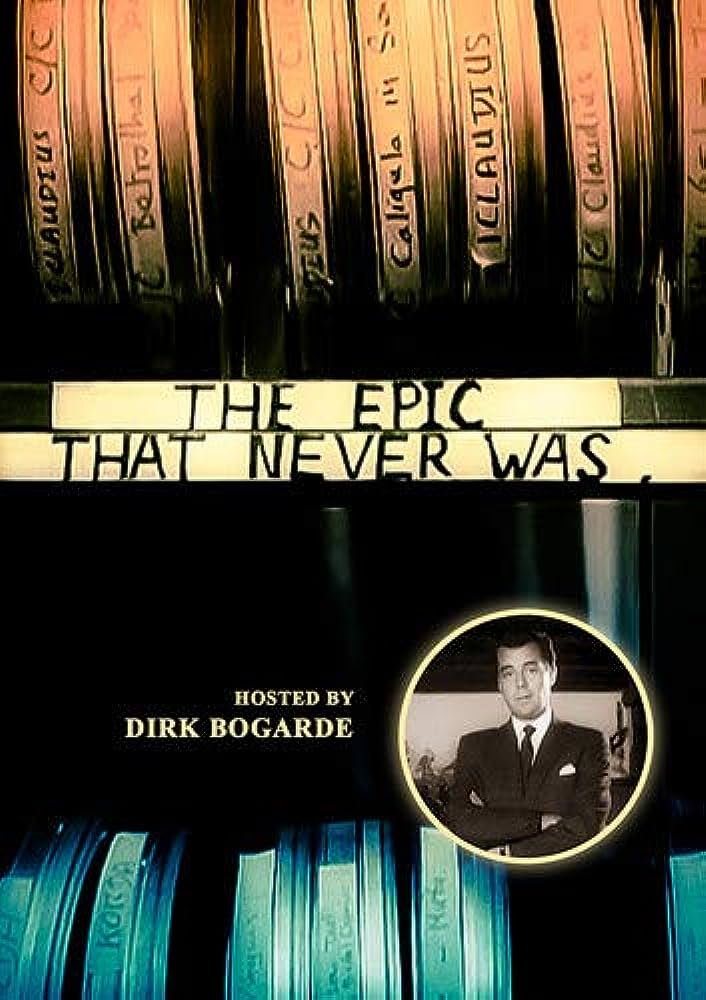 Craig Clarke wrote this review.
Craig Clarke wrote this review.
Based on two novels by Robert Graves, the BBC’s I, Claudius was a groundbreaking miniseries, and is still today considered by some to be the totem by which all other miniseries are measured. It stars Derek Jacobi as the titular emperor and autobiographer. As narrator, Claudius tells us his family history from his grandmother Livia’s marriage to the Emperor Augustus Caesar to the end of Claudius’ own life, at the hand of others.
At thirteen episodes, it is certainly a commitment, but certainly no greater one than watching the latest season of The Sopranos, whose classical tragedy format is obviously inspired in part by I, Claudius. (You’ll note that the manipulative matriarch of both is named Livia.)
But you’ll never notice the length because the story is so well told that it is as gripping as a soap opera. Claudius was long considered an idiot because he was born with a limp and a pronounced stammer (which Jacobi illustrates wholly sympathetically). However, in this environment of treachery, these infirmities saved his life (he was considered too lame-brained to be any trouble) and were eventually the reason for his being crowned emperor. He tells us the story of his family, following the Roman Imperial line from Augustus (with vague mentions of Julius Caesar as historical figure) through Tiberius (who his mother, Livia, ruled through) to Caligula and finally himself, with mention of Nero as a future emperor.
The majority of the miniseries consists of the first book, also titled I, Claudiuswith the second Claudius the Emperor vastly condensed to its high points, but this makes for a more dramatic story because, frankly, Livia is the more interesting person, her evil covering her vulnerability. In bookending this story with well known figures, it places itself in a temporal context that is familiar. This is also one instance in which the adaptation of a story is equal to the grandeur of the literary work. (Adapter Jack Pulman plays with the time order of the novels a bit, however; but does so only to put events in chronological order.)
Although Claudius tells the story, its true focus is on Livia, who was pure treachery in human form. Whatever she wanted, she got, and she didn’t care if she had to kill for it. She even killed one son so the other could reign. In a time when only men could rule, she coveted power and made sure that the only men who became emperor were the ones she could control from behind the scenes. This was done by eliminating all who were in the line of inheritance between the present emperor and her current choice. We only know what happened because, on her deathbed, she confessed all to Claudius, whom she had finally discovered was not so dumb after all.
The acting is of the highest quality here, with perfectly targeted performances all around. Brian Blessed is a loving father figure and ruler as Augustus. John Hurt is enjoyably insane and surprisingly restrained as Caligula. George Baker is perfect as Tiberius, the malleable son of Livia who would become the next emperor. But the whole thing would fail miserably if not for the central performances of Jacobi as Claudius and Sian Phillips as Livia, one of the great female characters.
Fans of Graves’ novels will not be disappointed and fans of historical fiction will find much to love here. I, Claudius is a fascinating portrait of the Roman Empire told from the inside.
 Included on the DVD set as an extra is the complete documentary film of The Epic That Never Was. In 1937 producer Alexander Korda attempted to bring the grandeur of Robert Graves’ novels to the silver screen. He hired Charles Laughton to play Claudius and Merle Oberon to play his wife, Messalina. Josef von Sternberg was directing.
Included on the DVD set as an extra is the complete documentary film of The Epic That Never Was. In 1937 producer Alexander Korda attempted to bring the grandeur of Robert Graves’ novels to the silver screen. He hired Charles Laughton to play Claudius and Merle Oberon to play his wife, Messalina. Josef von Sternberg was directing.
What could go wrong? Enough, certainly, for this film to never be completed. The story is pretty simple. Laughton was reportedly having difficulty grasping his character and got no assistance from von Sternberg, who was supposedly a bit of a taskmaster. Thus, when Merle Oberon was injured in an automobile accident, von Sternberg took advantage of the situation to cancel filming.
Dirk Bogarde leads us through the history behind this unfortunate happenstance, illustrating his words with surviving clips of the unfinished film. Given the evidence of Laughton’s performance as shown in this footage (and despite Laughton’s contrary opinion), we have missed out on what most probably would have been a classic.
The Epic That Never Was is fine in its own right. Interviews with surviving cast and crew – Oberon, von Sternberg, Flora Robson (Livia), Emlyn Williams (Caligula) – and Bogarde’s narration shed immense light on the behind-the-screen activities that led to this sad disaster, leaving the viewer with as close to the full picture as possible.
(BBC, 1976)
(BBC, 1965)
